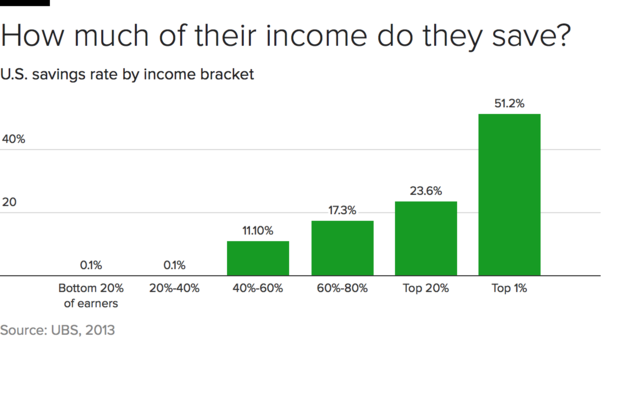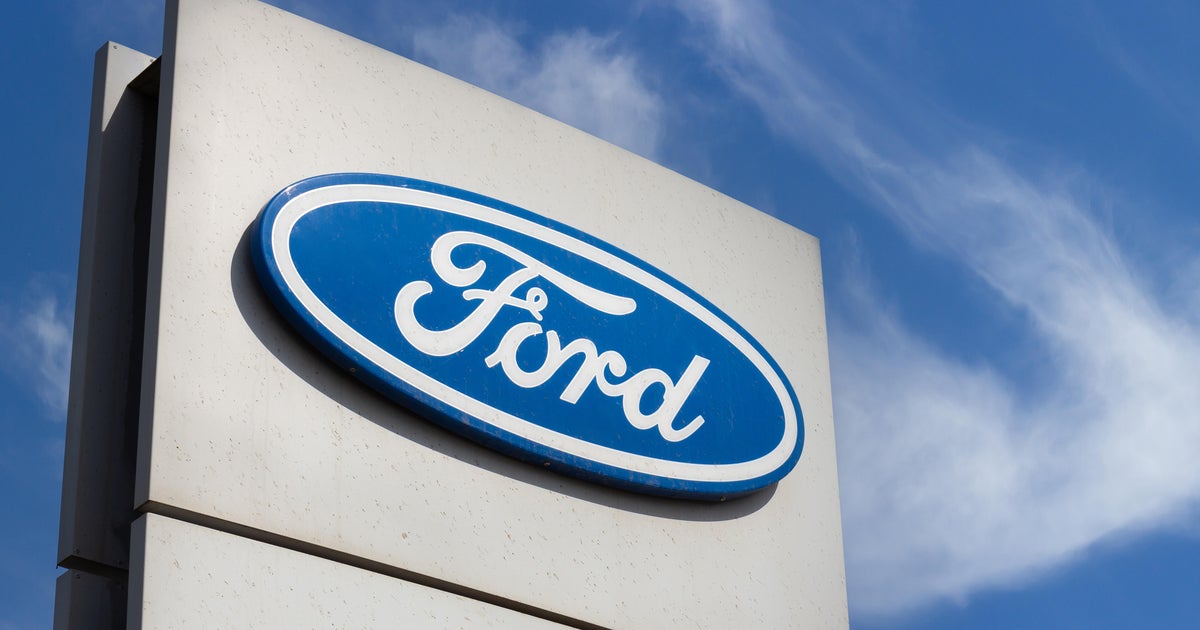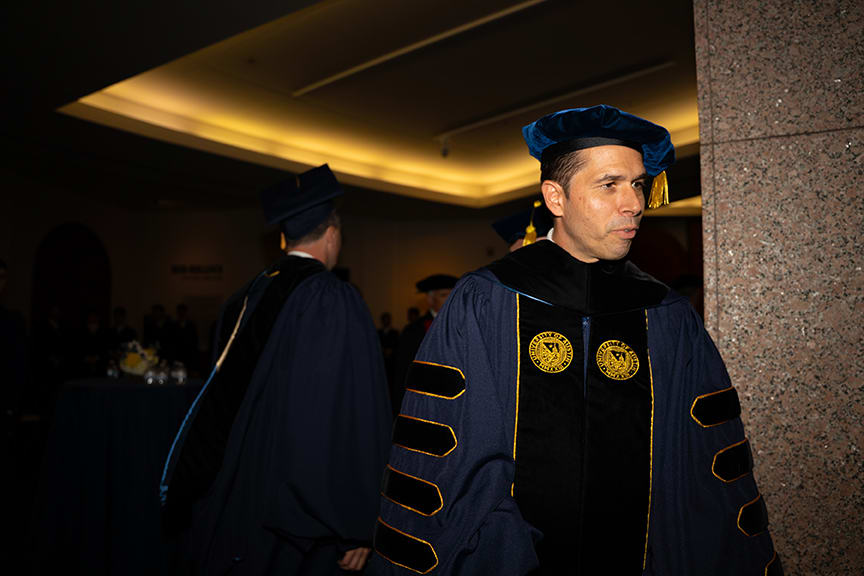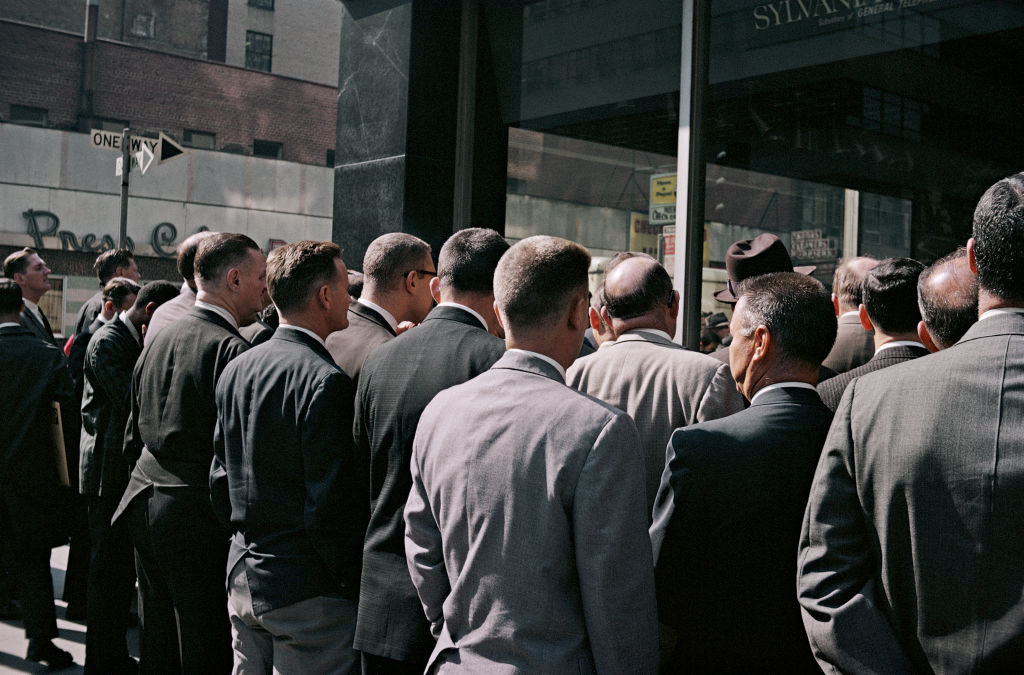One way to help America's middle class? Redistribute wealth
Growing inequality in the U.S. and labor automation could put a quarter of the U.S. workforce out of a job by the end of next decade, according to management consulting firm Bain & Co. That could put a chokehold on economic growth.
To address that threat, the firm proposes the kind of solution not often heard from corporate advisers like Bain: Take from the rich and distribute some of those resources to the rest of the country.
The analysis, laid out in the report Labor 2030: The Collision of Demographics, Automation and Inequality, examines the intersection of three major trends in the global economy: increasing reliance on automation, the aging workforce in most developed economies and the unprecedented levels of inequality in the world's largest economies.
Demographics are the catalyst for eventual economic stagnation, Bain writes. As the world's population ages, the labor force will grow more slowly than businesses require to keep expanding. It expanded by just 0.7 percent a year this decade, just over half its growth rate in the 1990s. By the 2020s, it's projected to increase by just 0.4 percent annually.
"In the short term, that should push up wages, and we're seeing it already in today's economy," said Karen Harris, a managing director of Bain's Macro Trends group. But it will also give incentives to businesses to invest in machinery over workers. By 2030, she projects, "about 80 percent of jobs are going to feel automation, either because their jobs go away or wages get suppressed."
"What happens to that bottom group is you have to be, essentially, cheaper than a robot," she added.
That in turn will feed existing inequalities, including eroding the middle class. The result will be "deeply unbalanced economies in which income is concentrated among those most likely to save and invest, not consume," according to the report. The imbalance will effectively cap demand, leaving the economy at a standstill.
That seemingly paradoxical result occurs because higher-income people, on average, don't spend as much of their income as those who earn less. When wealthy people gets an income boost, they're more likely to save or invest that additional money, whereas a poorer person is more likely to spend it. Consider that the U.S. economic expansion during the last century, and more recent expansions in China and India, were driven largely by the growth of the middle class.
"[I]f income shifts toward the mid to lower end of the spectrum, then effective demand is increased," the report said, "because that group continues to consume if given access to more income."
So what's to be done? Avoiding stagnation "means changing the pattern of income distribution somehow, shifting income toward those inclined to spend rather than save," Bain said.
This shift could take several forms, according to Bain, such as taxing wealth and income at higher rates, or expanding existing social safety net programs. To encourage businesses to hire humans instead of robots, governments could impose a robot tax, or conversely, subsidize employment of humans.
While it may be hard to imagine a more active government role under the current administration's hands-off approach to business, governments "can move quickly in response to economic crises," the report asserts. It cited history to prove its point: 15 years after the Great Depression, the U.S. government tripled its size to 15 percent of GDP and has never sunk below that level. After the global financial crisis in 2007, the Federal Reserve increased the size of its balance sheet fivefold, to its current level of $4.5 trillion.
Whatever form it takes, government activity is inevitable, the report predicts: "If history is a guide, governments will not only discern a need to intervene, their societies will demand it."
This might sound unusual coming from Bain, whose private-equity spinoff, Bain Capital, has drawn fire for the kind of corporate buyouts that critics say extract value from companies and leave workers out in the cold. (Bain Capital, which was co-founded by Mitt Romney in 1984, is a separate company from Bain & Co.) But lately, even fervent capitalists have expressed serious concerns over the unprecedented inequality in the U.S.
Ray Dalio, founder of Bridgewater Capital -- the largest hedge fund in the world, with about $150 billion under management -- in October penned a treatise lamenting the growing level of economic concentration. "The increasing disparity in financial conditions is a major cause of the slowing of growth," he wrote, adding that some form of "productive wealth transfers appears inevitable."
His message was echoed in December by Deutsche Bank economist Torsten Slok, who warned that "investors are making a mistake if they don't take inequality into account as a game changer."
In the U.S., that inequality will almost certainly worsen in coming years as the recent $1.5 trillion tax cut reverberates through the economy. The legislation overwhelmingly benefits the wealthiest Americans as well as foreign investors while giving much smaller amounts to middle- and low-income earners.
Bain avoids specific recommendations, but it mentions experiments with universal basic income in Finland and Switzerland while noting that, historically, governments faced with economic gaps have tended to intervene.
"We're going to see policy changes," said Harris. "It's not necessarily a bad thing -- public works programs, the space race and investments in that area fueled some of the technology we're still using today."
But just as technology upends the workplace and society, containing it might also require a completely different response, she said. "Existing social programs are set up for a different population scheme, and I think expanding them is not going to solve the problems we see today."






